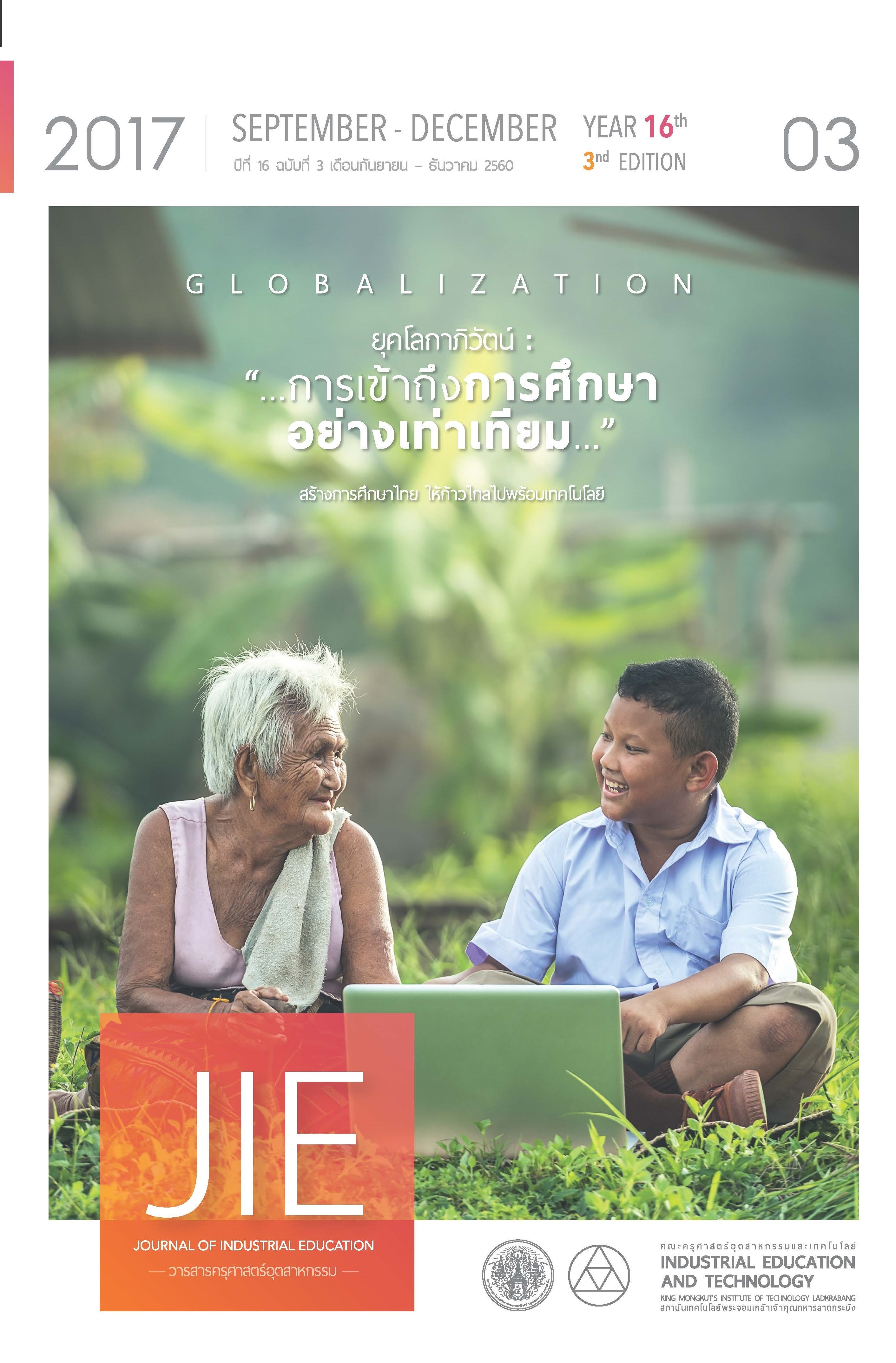THE EFFECT OF NON-FORMAL EDUCATION PROGRAM WITH RECREATION ACTIVITIES ON COPING WITH STRESS OF RURAL EARLY ADOLESCENTS
Keywords:
non-formal-education, recreation, coping with stress, early adolescence in ruralAbstract
The purposes of this experimental research in posttest control group design was to study the effect of non-formal education program with recreation activities for coping with stress of rural early adolescence and to assess the satisfaction of rural early adolescents on non-formal education program with recreation activities. The research sample were 62 rural early adolescents in Yong-star Island, Trang. They were selected by multi-stage sampling and divided into control group and experimental group (31 people per group). Research instruments were: - 1) a non-formal education program with recreation activities for promoting coping with stress on rural early adolescents which was approved the face validity by 5 experts; 2) questionnaires were designed by the researcher to assess coping with stress of rural early adolescents and evaluate rural early adolescent’s satisfaction. The content validity of both questionnaires were approved by five experts. Index of congruence of both questionnaires were 0.80-1.0. The coefficient of reliability using Cronbach’s alpha method of both questionnaires was 0.82 and 0.82 respectively. Data were analyzed by frequencies, mean, standard deviation and t-test. The results were as follows: - 1) there were significant differences in the overall and each item of coping stress of pre and post of the experimental group at .05 level; - 2) after experiment, the experimental group had better score in both the overall and each item of coping with stress than the control group at the statistic level of .05; -3) there were not significant differences both in the overall and each item of coping stress between before and after experiment of the control group;- 4) the experiment group had the highest scores of satisfaction in the non-formal education program with recreation activities.
References
[2] Prangsuthip Songwuttisil. 2014. Psychology of Child and Adolescence. Bangkok: Ramkhamhaeng university.
[3] Kunya Thanyamanta. 2012. Community Mantal Health. Bangkok: Ramkhamhaeng university.
[4] Patry, D. A., C. M. Blanchard and L. Mask. 2007. Measuring University Students’ Regulatory Leisure Coping Styles: Planned Breathers or Avoidance?. Leisure Sciences. 29(3): p.247-265.
[5] Rungson Chomeya. 2555. Perception of Educational Opportunities for Advanced Study in Higher Education of Disadvantaged Students in Remote Areas of the Northeast Thailand: A Case Study of the Socially Disadvantaged Students. Journal of Humanities and Social Sciences Mahasarakham University, 31(3); p.119-125.
[6] Taweep Apisit. 2011. Informal Education: The Education of the New World. Bangkok: Chulalongkorn University.
[7] Surintorn Satiansiriwiwat. 2013. Philosophy of Education and Management in the Basic Education Standard. Journal of Industrial Education, 12(1), p.220-228.
[8] Somrak Nithirittikrai. 2010. A Study of Database Model of Recreation Activities and Resources in Thailand. Journal of Health, Physical Education and Recreation, 31(1), p.148-162.
[9] Suwitcha Raksasri. 2015. The Development of Environmental Awareness through Recreational Activities for Fifth Grade Students. The Journal of the Veridian E-Journal,Silpakorn University Thai version in Humanities, Social Sciences and arts, 8(1), p.1231-1242.
[10] Noklang, S and S. Chaivichit. 2016. The Development of Undergraduate Student Identities of Srinakharinwirot University through Recreational Activities. International Conference on Human and Community Resource Development. 1(1), p.154-160.
[11] Creswell, J. W. 2014. Research Design: Qualitative, Quantitative, and Mixed methods approaches. California: Sage Publications.
[12] Maliwan Noklang, Sareepan Supawan and Chanoknart Boonwatthanakul. 2015. The Effects of Recreational Activity entitle Nipa Palm Products on learning Achievement of Early Adolescence in Koh Yong-star Community Palian District, Trang Province. Journal of Research and Curriculum Development, 5(2), p.60-71.
[13] Cordes, K. A. 2013. Application Recreation & Leisure For today and the Future. Illinois: Sagamore Publications LLC.
[14] Sumate Noklang. 2009. Effects of Dramatic Recreation Program on Coping with Youth Stress: A Case Study in Three Southern Border Provinces of Thailand. Master Thesis M.S. (Recreation). Kasetsart University.
[15] Non-Formal and Informal Education Centre for Special Target Groups, Office of the Non-Formal and Informal Education, Office of the Permanent Secretary, Ministry of Education. 2014. Non-formal education in basic education for children without Thai nationality subject to compulsory education. Primary school According to the Basic Education Non-formal Education Program BE 2551. Bangkok: Rangsee Printing.
[16] Rossman, J.R. and B.E. Schlatter. 2015. Recreation Programming: Designing and Staging Leisure Experiences. Illinois: Sagemon Publishing.
[17] Aksaraphat Damden, Suvimol Tungsujjapoj and Kulaya Tantiphlachiva. 2010. The effect of Recreation Program on Self- esteem of Adolescences. Journal of Health, Physical Education and Recreation, 31(1); p.140-147.
[18] Kanit Kheovichai and Wannapa Sangwattanakul. 2015. Recreation Activities Model with Community ParticipathionThrough the Use of Museum and Local Learning Resources to Promote the Creative Learning. Silpakorn Educational Research Journal, 7(2), p.22-32.
[19] Omsin Jatuporn and Amornrat Wattanatorn. 2017. The place-based curriculum development for enhancingstudents’ sense of community and belonging in a rural primary school. Journal of Liberal Arts, Prince of Songkla University, Hat Yai Campus, 9(1), p.114-142.
Downloads
Published
How to Cite
Issue
Section
License
"The opinions and contents including the words in papers are responsibility by the authors."
"ข้อคิดเห็น เนื้อหา รวมทั้งการใช้ภาษาในบทความถือเป็นความรับผิดชอบของผู้เขียน"



